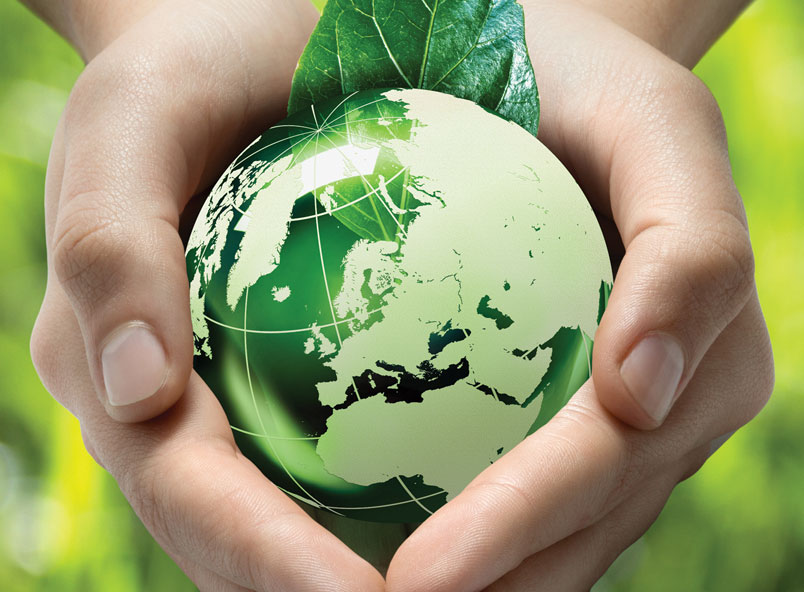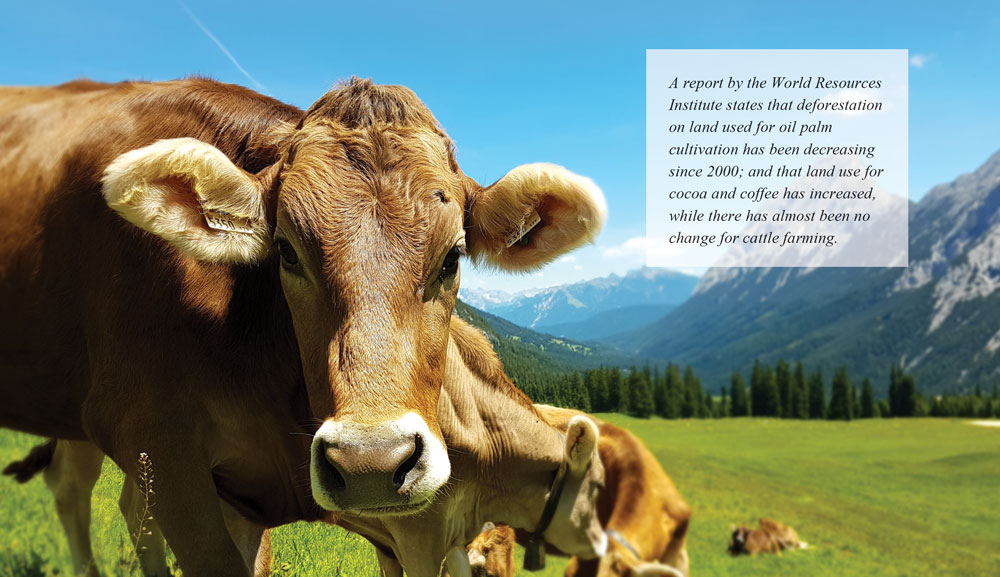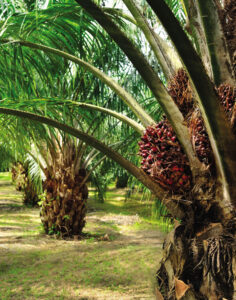



For deforestation-free supply chains
December, 2021 in Issue 4 – 2021, Comment
On July 16, 2021, the European Commission (EC) adopted its Communication on the New EU Forest Strategy (Forest Strategy) for 2030. The initiative is linked to the European Green Deal and builds on the EU Biodiversity Strategy for 2030.
The Forest Strategy recognises the central role of forests and the contribution of foresters and the entire forest-based value chain for achieving a sustainable and climate neutral economy by 2050. It reconfirms the EC’s commitment to forest management and deforestation-free supply chains, as set out in its 2019 Communication on Stepping up EU Action to Protect and Restore the World’s Forests.
In the Biodiversity Strategy, which is the EU’s ‘comprehensive, ambitious and long-term plan to protect nature and reverse the degradation of ecosystems’, the EC notes that biodiversity loss and climate change require urgent action. On this basis, the EC set out to work on the Forest Strategy.
The Forest Strategy is also linked to the European Green Deal, which is characterised as a ‘growth strategy to transform the EU into a fairer and more prosperous society, with a modern, competitive, climate neutral and circular economy’.
Earlier in 2021, the EC held a public consultation on the Forest Strategy which, according to the relevant Roadmap, will focus on setting a policy framework to address ‘effective afforestation, forest preservation and restoration in Europe’.
While the Forest Strategy does not specifically refer to any implications for third countries, it makes reference to the EC’s Communication on Stepping up EU Action to Protect and Restore the World’s Forests. This states: ‘EU consumption of food and feed products is among the main drivers of environmental impacts, creating high pressure on forests in non-EU countries and accelerating deforestation. Therefore, the consumption of products from deforestation-free supply chains in the EU should be encouraged both via regulatory and non-regulatory measures as appropriate.’
The core objective of the Forest Strategy is to help the EU to achieve:
The Forest Strategy recognises the central role of forests and the contribution of the forest-based value chain in achieving a sustainable and climate neutral economy by 2050. It sets out a policy framework aimed at delivering growing, healthy, diverse and resilient EU forests, which is intended to contribute significantly to the biodiversity ambition; secure livelihoods in rural areas and beyond; and support a sustainable forest bio-economy that relies on most sustainable forest management practices.
According to the Forest Strategy, forest management practices will be built ‘on a recognised and internationally agreed dynamic sustainable forest management concept that takes into account the multi-functionality, the variety of forests and the three inter-dependent pillars of sustainability’. Additionally, its annex provides for a Roadmap of action to plant 3 billion trees by 2030 in the EU.
Upcoming EU legislation
While the Forest Strategy focuses on EU forests, it reaffirms the EC’s commitment – made in its Communication to Protect and Restore the World’s Forests – to adopt legislation aimed at minimising the EU’s contribution to deforestation and forest degradation worldwide; and to promote the consumption of products from deforestation-free supply chains in the EU.
In 2020, the EC had published its Inception Impact Assessment for a legislative initiative on deforestation and forest degradation, and interested stakeholders provided initial feedback. A more detailed public consultation was held at the end of 2020.
The legislative proposal was published on Nov 17, 2021. Already in its Inception Impact Assessment, the EC had stated that one objective of the initiative is to promote the consumption of products from deforestation-free supply chains. The EC aims at introducing a due diligence system that would require businesses to ensure that their products, which are to be placed on the EU market, have not contributed to deforestation or forest degradation.
The legislative proposal on deforestation and forest degradation categorises countries as having a low, standard or high risk of deforestation and forest degradation. The categorisation will determine the respective due diligence obligations for companies selling products in the EU that originate in those countries.
In general terms, ‘simplified due diligence duties’ will apply to low-risk countries, while ‘enhanced scrutiny’ will be required for high-risk countries. However, the specific criteria for the classification remain unclear. In its proposal, the EC is limiting the scope of the requirements to six commodities – cattle, cocoa, coffee, oil palm, soybean and wood.
Public debate rarely makes a difference between sustainable and unsustainable palm oil production. More importantly, the oil palm is by far not the only agricultural commodity that should be considered in terms of the global environmental footprint – soybean, rapeseed, sunflower, canola, maize, sugar, beef and dairy production are arguably worse offenders and only some of those are covered by the EU’s proposal.
A report by the World Resources Institute states that deforestation on land used for oil palm cultivation has been decreasing since 2000; and that land use for cocoa and coffee has increased, while there has almost been no change for cattle farming.

As the EC itself has acknowledged, ‘deforestation and forest degradation are driven by many different factors’. This includes increased demand for food from a growing global population, feed, bioenergy and other commodities, ‘combined with low productivity and low resource efficiency’.
Partnership with producer countries?
Oil palm cultivation and its supply chain activities are extremely important for the economic and social well-being of Malaysia. The government remains committed to preserving its rich tropical forest coverage, as well as to sustainable cultivation of oil palm and the production of palm oil.
In 2019, the government capped the expansion of the oil palm cultivated area at 6.5 million ha, which effectively corresponds to a ban on new planting. Currently, the planted area covers 5.9 million ha. In addition, steps have been taken to ensure the sustainability of the oil palm sector, including implementation of mandatory certification for cultivators and palm oil producers under the Malaysian Sustainable Palm Oil standard.
At the same time, Malaysia has been stepping up action to protect forests and peatlands by further improving related laws and enforcement. Today, its forested area is estimated at almost 53% of the land area.
The New EU Forestry Strategy reaffirms the EC’s commitment to work ‘in close partnership with its global partners on forest protection, restoration and sustainable forest management’.
This commitment is also part of the Communication on Stepping up EU Action to Protect and Restore the World’s Forests. In line with its development-cooperation principles, the EU intends to work in partnership with producer countries to fight deforestation and forest degradation.
It appears that the EU intends to achieve true partnerships with third countries, without any unilateral imposition of specific actions or measures, particularly those that do not appear to be scientifically justified, and which are proportionate and the least trade restrictive.
However, this is clearly not the case when it comes to biofuel feedstocks, where the EU has developed a trade-restrictive approach on indirect land use change. It also does not appear to be the case with the forthcoming legislative proposal on deforestation-free supply chains and related due diligence obligations.
Deforestation is a global issue that requires cooperation and multilateral solutions. More can be achieved through bilateral, plurilateral and/or multilateral cooperation than unilateral action, even if it is masked as ‘work in partnership’.

Malaysia’s commitment towards sustainability and forest conservation must be recognised and factored in when trade-related policies are defined and actions are taken by the EU. There needs to be effective partnership with Malaysia to define and adopt bilateral, plurilateral or multilateral standards and solutions for sustainable forestry and agricultural production compliance.
Malaysia and its palm oil industry should also be prepared to take a stand on the EU legislative proposal on deforestation and forest degradation. Engaging with the EU to define the scheme and conformity assessment procedures to certify Malaysia’s palm oil products as ‘deforestation-free’ would deliver comparative advantages vis-à-vis competitors, as well as eradicate the unfortunate image that the sector has endured in Europe.
The objective will require strategic thinking and planning; technical, commercial, scientific and diplomatic advocacy; and the commitment of human and financial resources on Malaysia’s part. It will also require the EU to truly engage in bilateral or multilateral negotiations.
The hope is that reason will prevail and that negotiated solutions can replace unilateral measures, trade irritants, dispute settlement proceedings and ineffective or partial solutions to the urgent problems of climate change mitigation, environmental protection and sustainability.
FratiniVergano
European Lawyers